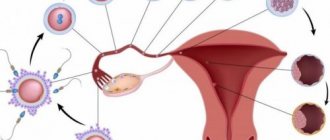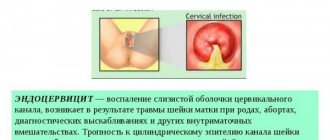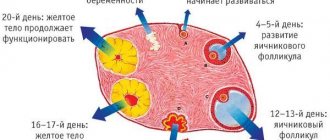It is unlikely that you can find at least one woman on planet Earth who boldly declared that the period of menstruation for her is a pleasant period that lifts her spirits and makes her smile with happiness. Menstruation is by no means the most pleasant process for women and, unfortunately, there is no escape from it. But, among other things, in some cases, monthly discharge can also cause an increase in a woman’s body temperature, which in total leads to unpleasant sensations and the thought “is everything okay?” Temperature during coronavirus can also be a symptom of the disease, but there is no need to panic in advance, first read about all the symptoms of COVID-19, consult your doctor, and then draw your own conclusions..
How is body temperature related to menstruation?
Menstruation (regula) in females occurs monthly and is often accompanied by malaise, deterioration of condition, and an increase in body temperature. Doctors believe that slight excesses of the norm are possible, and in most cases this is normal.
Firstly, the uterus contracts, blood rushes to it, which provokes a local increase in temperature in the abdominal cavity. Secondly, during menstruation, the female body is overloaded and works harder, and because of this, the indicator will also increase. Thirdly, the hormonal background changes, otherwise the woman’s endocrine system, which is responsible for thermoregulation processes, works.
Important! Body temperature is an indicator of the functioning of the body. The indicator may change due to various changes and deviations: hormonal imbalances, infectious diseases, inflammation, overexertion.
When an increase is not a concern
An increase in temperature to 36.9-37.4 is considered normal. An increase is often observed at the end of the day in the evening, after work, physical labor, overexertion or stress. An increase in the level in most women is observed several days before the onset of menstruation and persists for several days, and by the end of the month the level normalizes and falls.
The condition should be normal, although some people experience unpleasant symptoms during menstrual periods:
- cramping pain in the lower abdomen
- changes or mood swings
- depression
- weakness
- apathy
- tearfulness
- decreased performance
- general malaise
- body aches
This is acceptable, especially in the first two or three days. Then the condition normally improves and becomes the same as it was before menstruation.
Why is hypothermia dangerous?
When the thermometer drops to 32 or less, an adult or child falls into a coma. If you do not provide timely assistance, death will occur. Features of the body in which hypothermia develops:
- Body constitution. For people with pale skin and a fragile physique, a temperature of less than 36 ° C is not uncommon. Hypothermia is accompanied by a slow metabolism and weakness.
- Advanced age. After 65, hypothermia is not uncommon. This is due to age-related changes in the body.
- With a regular decrease in blood pressure (BP) without unpleasant symptoms, a constant low temperature is observed (up to 34–35 °C).
- Hypothermia is observed in pregnant women, during menstruation, or in early and late menopause (after 50 years). If a woman feels well and heat exchange rates return to normal on their own, then there is no reason to worry.
Constantly low body temperature affects:
- vestibular apparatus (dizziness, etc.);
- CNS;
- brain function;
- activity of the cardiovascular system;
- metabolic processes.
Medical assistance will be required:
- When the thermometer shows 35°C or lower.
- With trembling, weakness, vomiting and low temperature. Here you need to call an ambulance even at 35.6–36.1 °C.
- Against the background of hypothermia, the patient's speech and vision are impaired, hallucinations and fainting occur.
Low temperature in a child
Infants are from 0 to 2 months. the temperature remains low. For this reason, pediatricians advise closely monitoring the child’s well-being. The skin should be warm and dry. If hypothermia in children is stable, then you should consult a doctor.
When this condition continues for a long time in children, it negatively affects the functioning of all organs and systems, and metabolism slows down. At readings above 32 °C, the child faints. You should immediately contact your pediatrician.
Causes of low temperature in children:
- Taking antipyretics for colds.
- Fatigue, stress. The child should rest more, eat normally, and get enough sleep.
- Hypothermia, frostbite.
- Poisoning with food or toxic substances.
- Iron-deficiency anemia. Along with it, dizziness, drowsiness, fatigue, and fainting appear.
- During the development of the body (in infants and in adolescence), there are periods with readings of 35–35.5 degrees.
- Serious illnesses. The recovery period is often accompanied by hypothermia.
How to take measurements and evaluate results
To obtain reliable results and their correct assessment, it is recommended to measure basal temperature, which characterizes the lowest value achieved in a calm state after a long rest. And to catch deviations and fluctuations, keep a graph and take measurements over several months.
Basal temperature changes during the menstrual cycle, which is determined by the physiological characteristics of the functioning of the female body. This period is divided into the follicular phase and the luteal phase. In the interval between them, ovulation occurs - the release from the follicle of a fully matured and ready for fertilization egg.
In the first phase, temperatures are lower and will remain between 36.3-36.6 degrees (in any case, less than 37). Before ovulation, the temperature is lowest and drops by 0.1-0.2 degrees, and then, when entering the luteal phase, it increases by 0.4-0.5 degrees and reaches 37-37.1 degrees. Such values remain until menstruation, after which they decrease to the norms characteristic of the first luteal phase.
Hypothermia
Prolonged exposure to cold or rain causes a strong drop in body temperature, accompanied by obsessive chills and pale skin. If the victim can be quickly warmed up, the unpleasant symptoms disappear. This, however, does not mean that a person does not need medical care: hypothermia can have very unpleasant consequences for health, including long-term ones.
Hypothermia is an alarming sign that requires a full examination. This symptom should be taken seriously, under no circumstances should you self-medicate and consult a specialist in a timely manner.
Video from YouTube on the topic of the article:
Education: First Moscow State Medical University named after I.M. Sechenov, specialty “General Medicine”.
Found an error in the text? Select it and press Ctrl + Enter.
Same story with low temperature
I stayed from 34.8 to 35.7 for a whole year, now it has increased a little, it has become easier. Doctors don't find anything serious. Cholesterol is significantly elevated, sugar is slightly above the limit, pH 5.0. As a woman, everything is fine. Apparently the transitional female age is to blame; the problems began just during menopause.
The well-known drug Viagra was originally developed for the treatment of arterial hypertension.
Many drugs were initially marketed as medicines. Heroin, for example, was originally brought to market as a cure for children's coughs. And cocaine was recommended by doctors as an anesthesia and as a means of increasing endurance.
You are more likely to break your neck if you fall off a donkey than if you fall off a horse. Just don't try to refute this statement.
The average life expectancy of left-handers is shorter than that of right-handers.
Each person has not only unique fingerprints, but also tongue prints.
Human blood “runs” through the vessels under enormous pressure and, if their integrity is violated, it can shoot at a distance of up to 10 meters.
When we sneeze, our body stops working completely. Even the heart stops.
Tooth decay is the most common infectious disease in the world, which even the flu cannot compete with.
Scientists from Oxford University conducted a series of studies in which they came to the conclusion that vegetarianism can be harmful to the human brain, as it leads to a decrease in its mass. Therefore, scientists recommend not completely excluding fish and meat from your diet.
Besides people, only one living creature on planet Earth suffers from prostatitis - dogs. These are truly our most faithful friends.
It was previously believed that yawning enriches the body with oxygen. However, this opinion has been refuted. Scientists have proven that yawning cools the brain and improves its performance.
Human bones are four times stronger than concrete.
A job that a person doesn’t like is much more harmful to his psyche than no job at all.
The first vibrator was invented in the 19th century. It was powered by a steam engine and was intended to treat female hysteria.
According to WHO research, talking on a mobile phone for half an hour every day increases the likelihood of developing a brain tumor by 40%.
Every person can face a situation where they lose a tooth. This may be a planned procedure performed by dentists, or the result of an injury. In each and.
Possible causes of increased temperature during menstruation
Why does body temperature increase during menstruation? The reasons are various:
- Intestinal disorders . Functioning on menstrual days may change due to active contractions: the uterus is in close proximity to the organ, therefore, with high activity of its muscles, diarrhea is likely. In addition, diarrhea is possible due to eating disorders or strange taste preferences observed during PMS. And with increased peristalsis of the intestinal walls, blood rushes to them, which provokes a local increase in temperature.
- Infections of the genitourinary system . During menstruation, the cervix dilates, the entrance opens, and the organ becomes vulnerable to pathogenic microorganisms. Bacteria can enter the genitourinary system through swimming in open public waters, unprotected sex, or failure to comply with personal hygiene rules.
- Intestinal infections often develop in the summer: pathogens can enter the body along with food or water, or by airborne droplets. Such diseases are characterized by attacks of nausea, vomiting and diarrhea, increased body temperature, weakness, bloating and flatulence, and pain.
- Venereal diseases . You can become infected with sexually transmitted diseases through unprotected and promiscuous sex without using condoms. With STDs, abnormal vaginal discharge, menstrual irregularities, general malaise, and high fever are observed.
- Pregnancy. Its onset is not always accompanied by a delay: sometimes menstruation continues, but becomes scarcer. You should do a test as soon as possible and contact a gynecologist to confirm conception and eliminate the risks of a missed or ectopic pregnancy, as well as spontaneous abortion. Often, menstrual flow indicates just such conditions.
- Hormonal imbalances are observed in both adult women and teenage girls during active puberty. In case of violations, there are delays in menstruation, a reduction or increase in the periods between them, changes in the nature of discharge, a complete absence of critical days (amenorrhea), and painful periods (dysmenorrhea).
- Gynecological diseases : fibroids, endometritis, adnexitis, polycystic ovary syndrome, endometriosis, cervical erosion. If you get sick “like a woman,” you might not notice it, but the reproductive system will work differently: inflammation will provoke fever, menstrual irregularities, pain, and problems with conception. If left untreated, the disease becomes chronic, and exacerbations often occur on critical days, because at this time the body is weakened, and the genitals are overstrained and vulnerable.
- Consequences of abortion . If it was carried out underground, or the patient neglected the recommendations given by the doctor, the surgical intervention could trigger an inflammatory process, which would certainly be accompanied by an increase in body temperature. You may also experience heavy discharge with clots, bleeding, chills, weakness, fever, pain and cramping pain in the lower abdomen.
- Climax. During this period, global changes occur in the female body, accompanied by changes in the functioning of the endocrine system and hormonal imbalances. Women experience a feeling of heat, increased sweating, hot flashes, mood swings, tearfulness, dizziness, increased heart rate, shortness of breath and other unpleasant symptoms.
- Colds . The risks of getting ARVI or flu during menstruation increase, since the body is weakened and overloaded, and often the onset of menstruation coincides with the first signs: weakness, sore throat and cough, runny nose, high temperature, lacrimation. A sick woman may feel feverish and shiver, shake, feel nauseous, and her whole body will ache and her head will hurt severely.
For your information! Women who breastfeed believe that they provide contraception and are protected from pregnancy. But this is not true: prolactin really suppresses ovulation, but if the child begins to breastfeed less often, the level of the hormone decreases and its contraceptive effect is minimized.
What will help relieve the condition?
If body temperature or BT rises during menstruation, causing some discomfort, the following recommendations will help improve the woman’s condition:
- a couple of days before your period, you need to reconsider your diet and remove fried, spicy and smoked foods from it. It is better to eat more fresh plant foods at this time;
- during critical days you should not drink coffee, it is better to give preference to green and black tea;
- physical activity should be maintained. Walking and light exercises will help overcome apathy and fatigue, and also give a boost of energy and good mood. It is important that physical activity is moderate; you should not go to the gym or engage in contact sports at this time;
- there is no need to visit saunas, swimming pools and open reservoirs during critical days, this can contribute to the development of infectious diseases and inflammatory processes;
- There is no need to expose your body to high temperatures, meaning that you should not take a hot bath or turn on too hot water in the shower. Also, you should not do any warming up;
- To improve the overall tone of the body during menstruation, you can drink extract of Eleutherococcus or Schisandra chinensis.
Even if, when using these recommendations, body temperature or BT has increased slightly, there is no need to worry; you should definitely visit a doctor if there has been a sharp temperature jump in combination with severe pain in the lower abdomen and other uncomfortable symptoms listed above.
Sources:
https://www.probirka.org/biblio/polezno/7489-prichini-plochogo-samochuvstviya-vo-vremya-mesyachnich.html https://topginekolog.ru/menstruation/o-mesyachnyh/temperatura https://tvoimesyachnye. ru/obshhie-svedeniya/temperatura-pri-mesyachnyh











